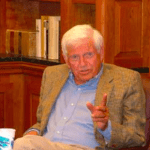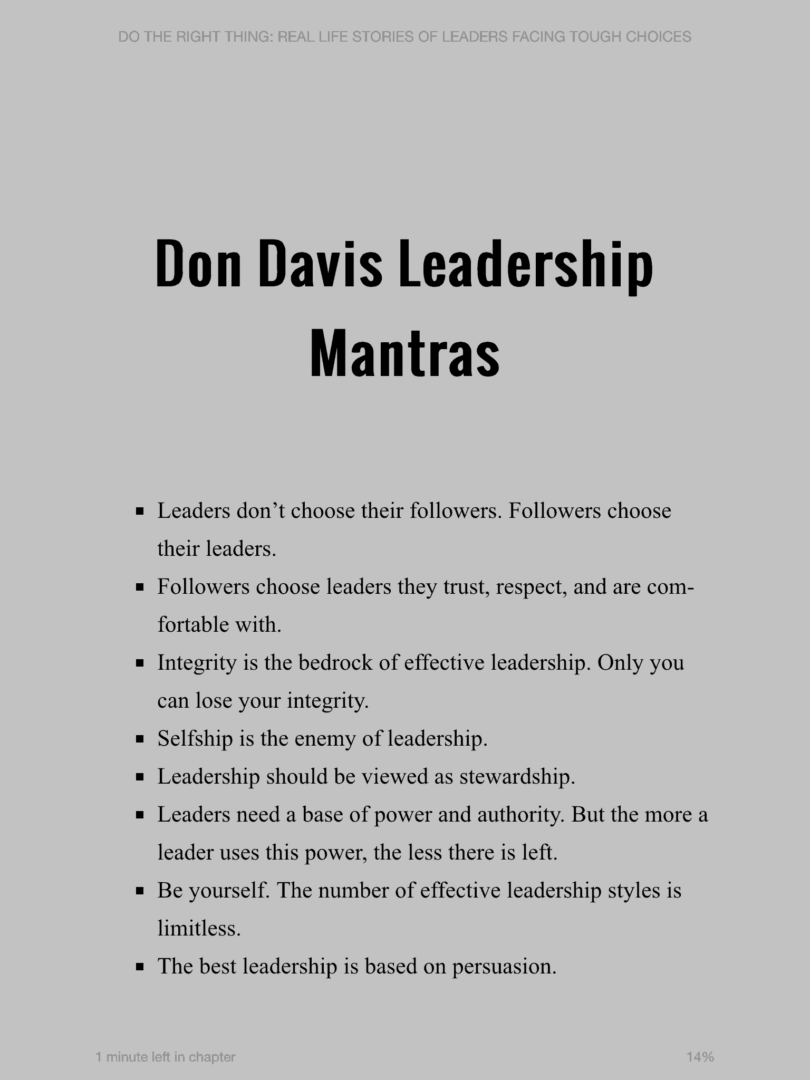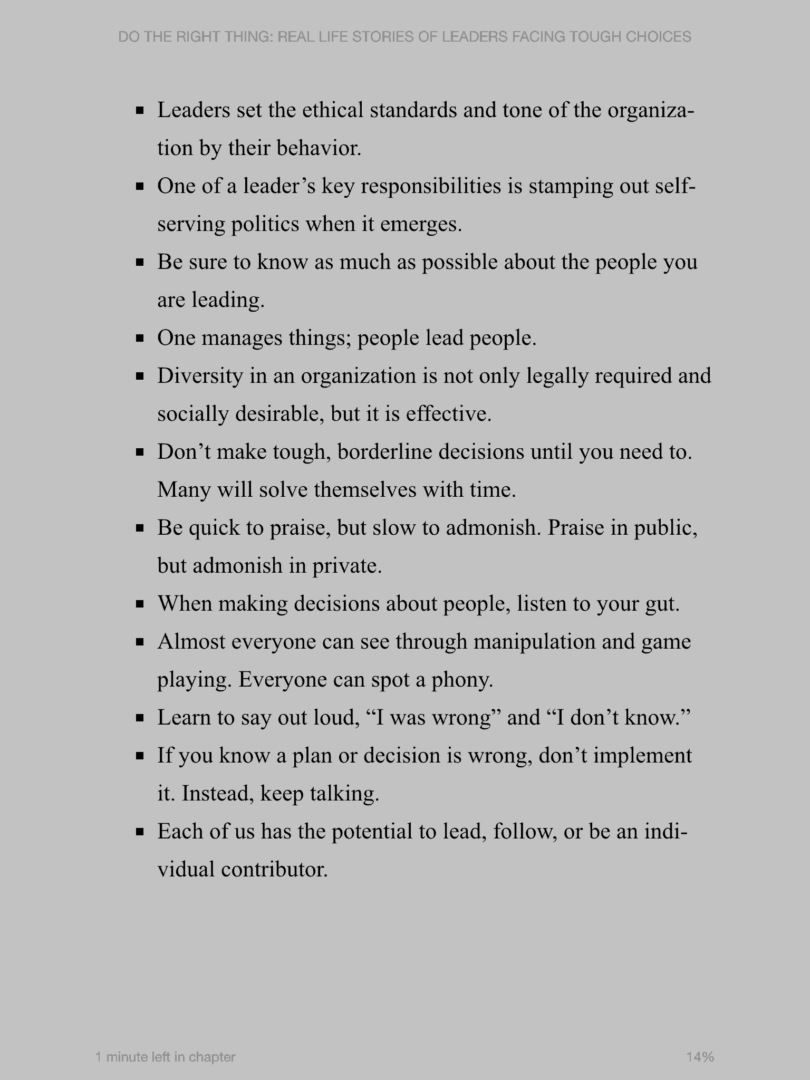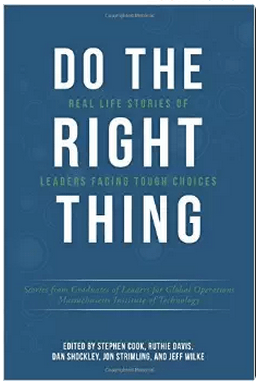It's been just about 18 years since I was leaving GM to start the master's program at MIT's Leaders for Manufacturing program (now called Leaders for Global Operations). Here's a 1992 interview that describes the origins of the program. It was a different world then… trying to save and bolster “American manufacturing” while we're now in a world where everybody is a global company and fewer academics lament the decline of this value-adding sector.
Being a student and a graduate of that program has been incredibly rewarding and helpful to me and my career in so many ways. It's a great community and I still participate in the program's annual alumni conferences. Last month, I gave a talk at the conference that was meant to inspire alumni to get involved, in some way, to help fix our healthcare system.

As I reminisce about the program, one highlight was the volunteer teaching of Don Davis, the retired CEO of Stanley Works. Don retired after serving as CEO for more than 20 years and then volunteered to teach a seminar on leadership and ethics for the LFM/LGO program. As the story goes, Don wanted to help industry, so he approached MIT to teach and asked for nothing in compensation other than access to the MIT squash and tennis facilities.
In the seminar discussions (Don didn't lecture much), he set a great example as a leader. In many ways, he was ahead of the curve on topics like “servant leadership.” In other ways, he was “old school,” including the importance he placed on integrity and doing the right thing (I'd like to think that “doing the right thing” is making a comeback, at least in some circles). It was an amazing opportunity to have Don as an instructor and mentor.
Don passed away in 2010 and left an unfinished book in progress. One of my friends (and former colleagues from Dell in the late '90s), Steve Cook and a number of other alumni completed the book, working with Don's daughter Ruthie Davis (of the eponymous shoe company).
The book is Do the Right Thing: Real Life Stories of Leaders Facing Tough Choices.
Do the Right Thing highlights Don's “leadership mantras” and real-life stories from alumni who leaned upon these mantras to make tough decisions in their careers.
Here's a blog post written by one of Don's grandchildren that explains the mantras: 20 Mantras Great Leaders Live By Every Day.
Here's how they appear, summarized in the book's Kindle version:


Listen to Mark read the post and the mantras (subscribe to the podcast):
One of those mantras especially reminds me of Toyota-style leadership:
Leaders need a base of power and authority but the more they use it, the less there is left.
That reminds me of the mantra from former Toyota executive Gary Convis:
Gary Convis recalls Kan Higahsi, his mentor at NUMMI, telling him his greatest challenge would be “to lead the organization as if I had no power” and that he must shape the organization by example through coaching, understanding and helping others to achieve their goals.
Read more: Blogging for Lean disambiguation & true kaizen | Gemba Panta Rei
Telling somebody to do something “because I said so” or because you're the boss – that's leading with power and authority. I agree that authority is not a bottomless well. As Don said, followers choose their leaders… and they're unlikely to unchoose somebody who is overly authoritarian.
I heard similar ethical guidelines when I worked for Johnson & Johnson, but Don was the first I heard say “Think about what you're doing and whether you'd want to see it on the front of the NY Times or the Wall St. Journal.” Ironically, J&J has often fallen short of that ethical standard in many ways over the past few years, even with their famed “Credo.”
As Don taught us, “Only you can lose your integrity” and that applies to people and companies.
I hope you'll check out the book. You can also see an online “memory book” with recollections of Don and his teachings.
What do you think of the mantras? Are they old school, cutting edge, or timeless?
The Mantras:
- Leaders don't choose their followers. Followers choose their leaders.
- Followers choose leaders they trust, respect, and feel comfortable with.
- Be yourself. The number of leadership styles is limitless.
- Leaders need a base of power and authority but the more they use it, the less there is left.
- The best leadership is based on persuasion.
- Leaders set the ethical standards and tone of their organizations by their behavior.
- Integrity is the bedrock of effective leadership. Only you can lose your integrity.
- “Selfship” is the enemy of leadership.
- Be quick to praise, but slow to admonish. Praise in public, but admonish in private.
- One of a leader's key responsibilities is stamping out self-serving politics when they emerge.
- Be sure to know as much as possible about the people you are leading.
- One manages things, but people lead people.
- Diversity in an organization is not only legally required and socially desired, it's effective.
- Leadership should be viewed as stewardship.
- Don't make tough decisions until you need to. Most will solve themselves with time.
- When making decisions about people, listen to your gut.
- People can see through manipulation and game-playing. Everyone can spot a phony.
- Learn to say out loud “I was wrong” and “I don't know.”
- If you know a plan or decision is wrong, don't implement it. Instead, keep talking.
- Each of us has potential to lead, follow, or be an individual contributor.
- Focus on quality, service, and value — not the lowest price.
- Create a culture of lifelong learning and education.
- Steady your reactions.
What do you think? Please scroll down (or click) to post a comment. Or please share the post with your thoughts on LinkedIn – and follow me or connect with me there.
Did you like this post? Make sure you don't miss a post or podcast — Subscribe to get notified about posts via email daily or weekly.
Check out my latest book, The Mistakes That Make Us: Cultivating a Culture of Learning and Innovation:











[…] stories from Don’s students about real life leadership challenges that they faced and how Don’s “leadership mantras“ helped them in those […]